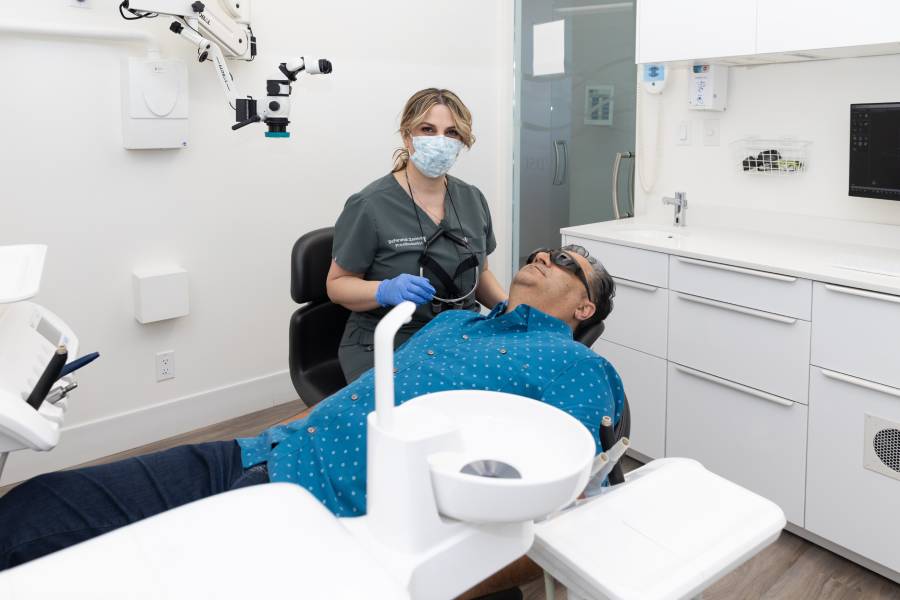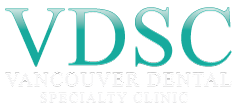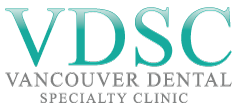
Understanding Jaw Clicking
Jaw clicking can be an occasional annoyance or a sign of an underlying issue. If you hear a popping sound when you open or close your mouth, it may indicate problems with the temporomandibular joint (TMJ). This joint connects the jawbone to the skull and plays a vital role in talking, chewing, and yawning. While occasional clicking is harmless, persistent discomfort may signal temporomandibular joint disorder (TMD).
Common Causes of Jaw Clicking
Several factors can contribute to jaw clicking, ranging from minor muscle tension to more serious joint disorders:
1. Teeth Grinding (Bruxism)
Habitual teeth grinding, especially at night, puts stress on the TMJ. This repetitive motion can cause jaw clenching and lead to clicking sounds over time. Over time, this can also wear down the enamel of the teeth and contribute to increased tooth sensitivity.
2. Jaw Clenching
Stress-related jaw tension often results in unconscious clenching, straining the TMJ and leading to dysfunction. This condition is often linked to anxiety and can exacerbate existing jaw issues.
3. Jaw Injury
A direct blow to the jaw, a dislocated joint, or past trauma can contribute to misalignment and popping sounds. Sports injuries, car accidents, or even excessive dental work can be potential triggers.
4. Arthritis in the Jaw Joint
Osteoarthritis and rheumatoid arthritis can wear down the cartilage in the TMJ, causing stiffness, pain, and clicking. As the joint degenerates, it can lead to chronic discomfort and reduced range of motion.
5. Malocclusion (Misaligned Bite)
When teeth do not align properly, the jaw compensates with abnormal movements, which may lead to TMJ dysfunction. Misalignment may also cause uneven pressure distribution across the jaw, contributing to muscle fatigue and pain.
6. Stress-Related Jaw Tension
Chronic stress can result in muscle tightness and increased strain on the TMJ, making clicking more noticeable. High stress levels can also lead to habits such as biting nails or chewing on objects, further aggravating the condition.
Jaw Popping Symptoms to Watch For
Jaw clicking alone may not require treatment, but additional symptoms may indicate a more serious condition. Seek professional help if you experience:
- Pain while chewing or speaking
- Limited jaw movement
- Jaw locking
- Frequent headaches
- Ear pain or ringing (tinnitus)
- Facial muscle stiffness
- Changes in your bite alignment
When to See a Dentist for Jaw Clicking
If your jaw clicking is persistent, painful, or accompanied by difficulty moving your jaw, a dental specialist can evaluate your condition. A dentist experienced in TMJ disorders can diagnose the issue and recommend appropriate treatments. Early intervention can prevent worsening symptoms and potential complications.
Treatment Options for Jaw Clicking
Depending on the cause and severity, treatment may include:
1. Dental Splints for TMJ Disorders
Custom dental splints or mouthguards help reposition the jaw and prevent teeth grinding, reducing stress on the TMJ. These devices can also help stabilize the jaw during sleep.
2. Jaw Exercises for TMD
Gentle stretching and strengthening exercises can improve jaw function and decrease discomfort. Exercises focusing on controlled movement can help realign the joint and ease tension in the surrounding muscles.
3. Physical Therapy
Techniques such as ultrasound therapy, massage, and stretching may relieve muscle tension and promote joint mobility. A trained physical therapist can guide patients through targeted movements that improve jaw stability.
4. Medications
Nonsteroidal anti-inflammatory drugs (NSAIDs) or muscle relaxants can help manage pain and inflammation. In severe cases, corticosteroid injections may be recommended.
5. Bite Adjustment
Correcting an uneven bite with orthodontic treatments may alleviate TMJ dysfunction. Orthodontic intervention, such as braces or clear aligners, can help align the teeth and reduce strain on the jaw joint.
Home Remedies for Jaw Popping
If your jaw clicking is mild, try these self-care strategies:
- Apply warm compresses to relax jaw muscles.
- Avoid chewing gum and hard foods.
- Practice relaxation techniques to reduce stress-related tension.
- Maintain proper posture to prevent jaw strain.
- Use over-the-counter pain relief as needed.
Be mindful of habits such as resting your chin on your hand or grinding your teeth.
Contact Us
If you're experiencing persistent jaw clicking or discomfort, the specialists at Vancouver Dental Specialty Clinic can help diagnose and treat your condition. Contact us today to schedule a consultation.



